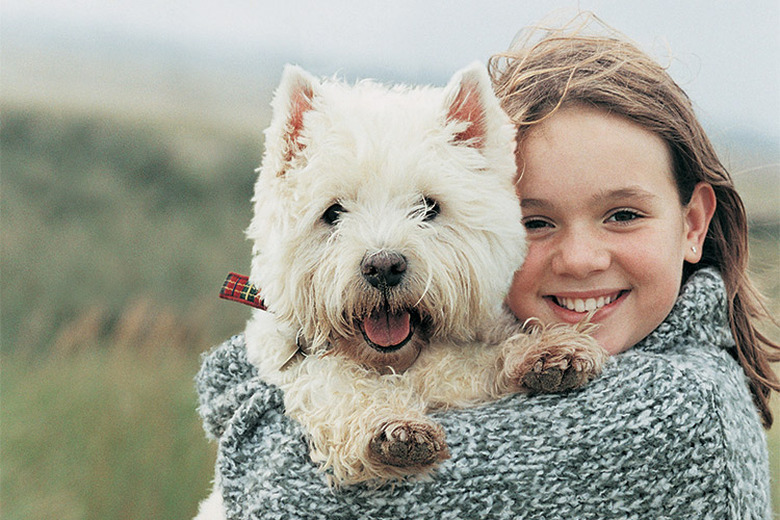Facts About Westie Dogs
The West Highland white terrier, or Westie, is an adorable, small white dog who is a joy to have in your home. The breed was used to hunt rats and other rodents, and the breed excelled at this role due to their tenacious and strong nature. They were bred in the 1700s in Scotland by the Malcolm clan, and by the early 1900s, the breed was taking part in American Kennel Club dog shows.
West Highland white terrier characteristics
West Highland white terrier characteristics
The Westie dog breed was accepted into the American Kennel Club in 1908. These dogs are a member of the terrier group. Westie dogs are small pups who weigh 15 to 20 pounds. Males tend to be slightly larger, growing about 11 inches tall, while females grow to about 10 inches in height.
This compact terrier has a wiry white coat with a soft undercoat. They have dark brown, wide-set eyes and small, erect ears. They also have a short, carrot-shaped, erect tail. Their coat is longer on the back and sides and is shorter on the neck and shoulders.
Westie temperament and training
Westie temperament and training
Breed is not a reliable indicator of personality; however, the Westie dog is typically a happy and entertaining pup who is a pleasure to have in your home. They are quite loyal and affectionate with family and young children. Their loyalty and vigilance means they can excel as watchdogs for your home.
Westies have countless positive traits, but one challenge is that they aren't always easy to train. The breed tends to be extremely smart and confident, which means they can learn quickly. They are also quite independent, and it can be challenging to keep their attention. Be consistent and keep training sessions short and fun. Always use positive reinforcement training and make sure your West Highland white terrier puppy is socialized with other dogs, people, and situations.
West Highland white terrier grooming
West Highland white terrier grooming
These terriers have a double coat and need regular grooming. You can brush your Westie each day or take the more traditional approach and strip or pluck the dead fur. If you prefer a shorter, manicured coat, consider having your Westie groomed by a professional every four to six weeks.
Be sure to trim your Westie's nails each month or ask your groomer to do so. It is also important to check and clean the ears, although upright ears don't tend to get infected as frequently as drop ears.
Westie exercise and health
Westie exercise and health
Westies have a fairly high energy level and need daily exercise. They will enjoy walks or playing with you in the yard. Make sure the yard is enclosed because these independent pups won't hesitate to chase after small critters. Canine sports can be a fun way to exercise your Westie. Consider activities like agility and rally.
Westies typically have a life span of 13 to 15 years. They tend to generally be healthy, but like many small dogs, they tend to develop tooth problems over time. Consider brushing your Westie's teeth regularly as a part of your grooming schedule.
There are also some hereditary health conditions that the breed may develop, although responsible breeders will test for these conditions. These tests include regular ophthalmologist exams, a hip and elbow evaluation, and genetic testing for the bone disease craniomandibular osteopathy. It is important not to breed dogs who develop these genetic conditions.
